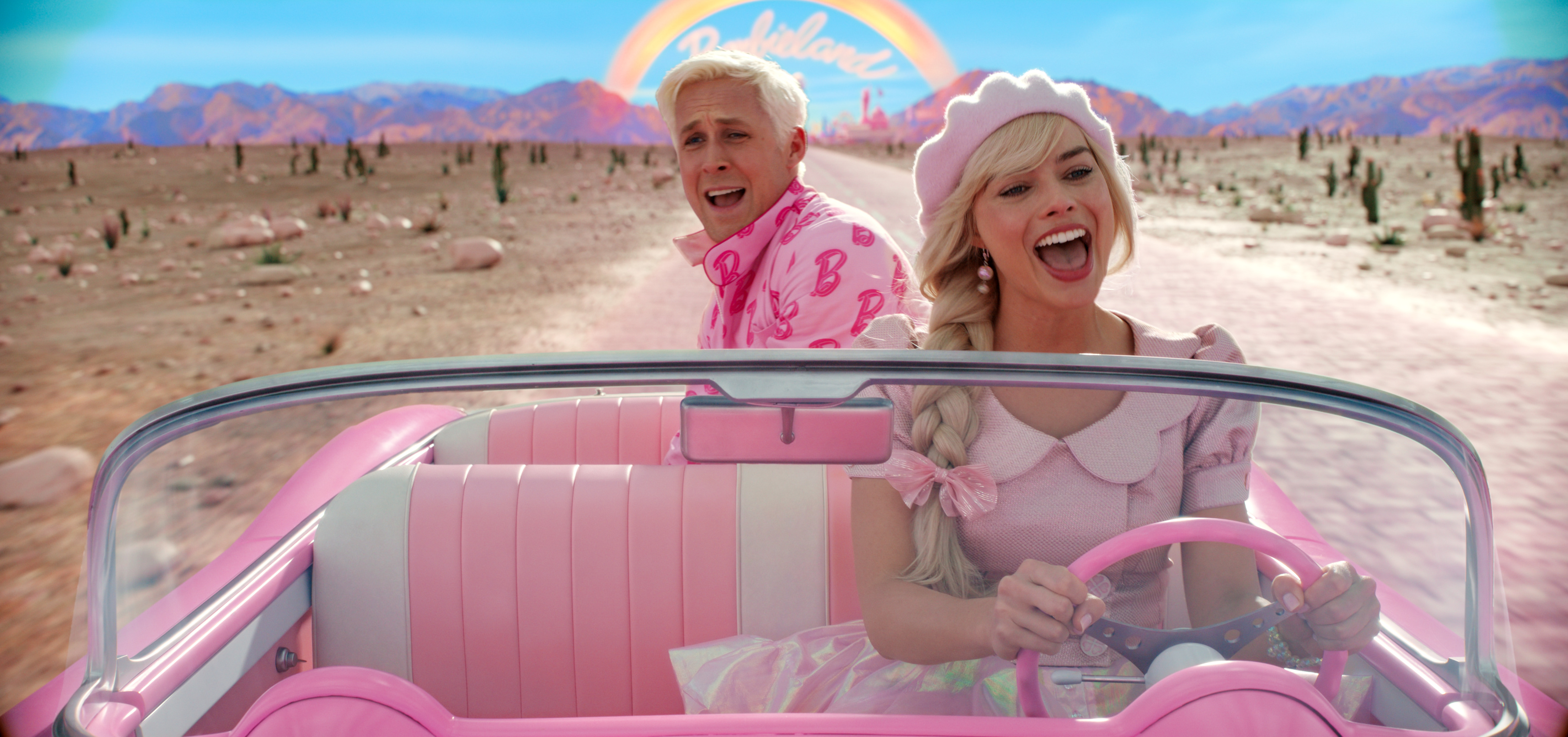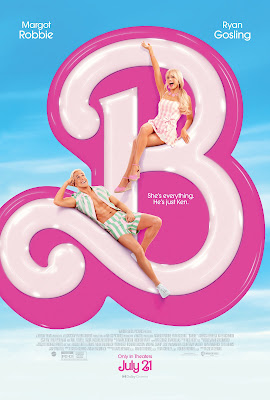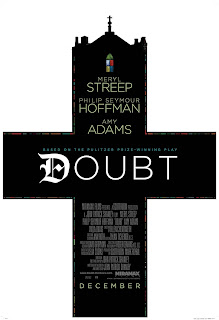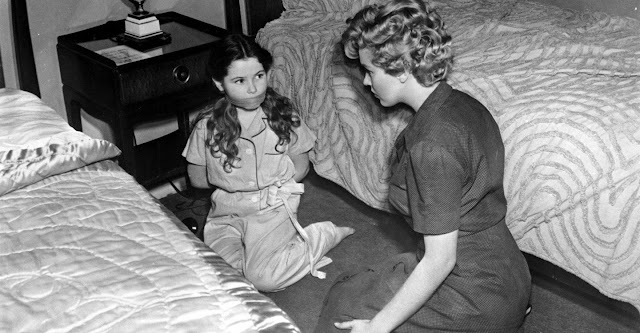Review | Barbie | 2023
 |
| RYAN GOSLING as Ken and MARGOT ROBBIE as Barbie in Warner Bros. Pictures’ “BARBIE,” a Warner Bros. Pictures release. |
It should come as no surprise, given the quality of Greta Gerwig's first two efforts behind the camera (Lady Bird and Little Women), that Barbie is as good as it is, but it's still somewhat disarming that a film based around Mattel's legendary doll is as incisive, heartfelt, and human as it is.
Its remarkable success (a true box office smash in the year of our lord 2023) could be attributed to any number of things - a dearth of unabashedly woman-centered media, a general hunger for films that aren't sequels or part of some greater cinematic universe, the "Barbenheimer" meme that has been growing steadily on social media in the months leading up to its release, but one of the biggest reasons might be the simplest; it's just a damn good movie.First and foremost, this Barbie isn't aimed at children as much as it is aimed at people who played with Barbies as a kid. Or maybe that hated Barbies as a kid. That's what makes Barbie such a smart film - it is fully and completely self-aware of the doll's iconography and the controversies that have swirled around its idealized vision of femininity and its place in our culture. Here, Barbie (Margot Robbie) is a doll living in a perfect pink world where feminism is the standard, the patriarchy has been smashed, and the problems of all women have been solved. But she is soon plagued with doubt and existential thread when the worries of her one-time owner (America Ferrera), now a grown up designer at Mattel, start to leak into Barbieland, sending her on a journey to real world to find her owner and set the world right with her unique brand of can-do spirit and naïveté. Upon arrival in the real world, however, she discovers that it is not the feminist utopia she expected that Barbies had inspired.
Barbie's feminism is ultimately fairly surface level, but I feel like many of the criticisms of it as simply "girl boss feminism" are somewhat unfair. Gerwig is too smart for that, and she manages to make her Barbie about more than women being able to be any high powered job they want. It's really about what it means to be a woman. And that woman can be thin or fat, blond or brunette, white or black, and yes even transgender. This is, ultimately, a movie about a doll who wants to become real, but Gerwig taps into something innate about femininity that is hard to shake. It is, above all, a celebration of women, a movie that eschews the seemingly unattainable standards its namesake has been criticized for inspiring. It acknowledges fault, accepts responsibility, and works toward something that embraces everyone.
Of course, Barbie is a movie made in participation with a multi-million dollar corporation that certainly wants to sell more dolls. But Gerwig smartly uses that as an avenue to explore not just how something as simple as a toy can influence culture, she examines how that is used to shape how women see themselves, for better or worse, and how the things we loved as children follow us into adulthood.
In that regard, it's a kind of Toy Story for adults, squarely taking aim at millennial angst about our place in an ever-changing world that isn't as good as the one we thought we were building, and how relics form our past may be able to help us understand where we came from to see where we're going. And it does so not by wallowing in nostalgia for an intellectual property, but by using that property as a mirror in which to see ourselves.
Individual mileage may vary, of course, but I think a movie that is as boldly conceptualized as Barbie doing massive numbers at the box office can only be a good thing. It shows audiences are willing to take risks - even if the IP is familiar, this looks and feels nothing like a typical summer tentpole. No, this is something rare and special; a film that helps us see something in ourselves that maybe we forgot. When Barbie first arrives in the real world, she sits next to an old woman at a bus stop and says with a kind of awe, "you're beautiful!" The woman looks at Barbie, and rather than acting surprised or moved, she smiles and says "I know it!" And in that moment, we believe that we are too.




Comments